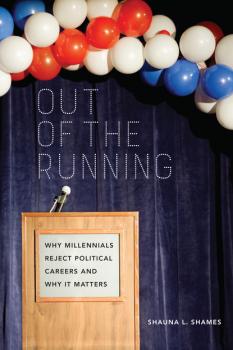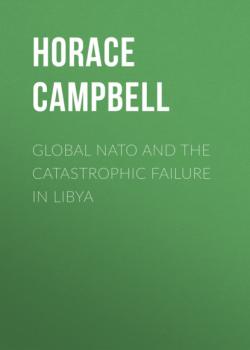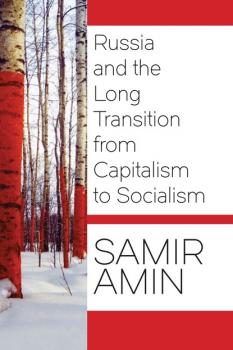Зарубежная публицистика
Различные книги в жанре Зарубежная публицистикаSam is Dead
No one grieves the death of Samuel Rutherford, a man with a harsh personality and an even more chilling backstory. After all, who would mourn the passing of a murderer?
No one, that is, except for Eric Grant. Eric, a young man with abusive parents and a haunting past, reflects back on how he and Sam met and how his actions led to his mentor’s untimely death.
Arab New York
From Bay Ridge to Astoria, explore political action in Arab New York Arab Americans are a numerically small proportion of the US population yet have been the target of a disproportionate amount of political scrutiny. Most non-Arab Americans know little about what life is actually like within Arab communities and in organizations run by and for the Arab community. Big political questions are central to the Arab American experience—how are politics integrated into Arab Americans’ everyday lives? In Arab New York , Emily Regan Wills looks outside the traditional ideas of political engagement to see the importance of politics in Arab American communities in New York. Regan Wills focuses on the spaces of public and communal life in the five boroughs of New York, which are home to the third largest concentration of people of Arab descent in the US. Many different ethnic and religious groups form the overarching Arab American identity, and their political engagement in the US is complex. Regan Wills examines the way that daily practice and speech form the foundation of political action and meaning. Drawing on interviews and participant observation with activist groups and community organizations, Regan Wills explores topics such as Arab American identity for children, relationships with Arab and non-Arab Americans, young women as leaders in the Muslim and Arab American community, support and activism for Palestine, and revolutionary change in Egypt and Yemen. Ultimately, she claims that in order to understand Arab American political engagement and see how political action develops in Arab American contexts, one must understand Arab Americans in their own terms of political and public engagement. They are, Regan Wills argues, profoundly engaged with everyday politics and political questions that don’t match up to conventional politics. Arab New York draws from rich ethnographic data and presents a narrative, compelling picture of a community engaging with politics on its own terms. Written to expand the existing literature on Arab Americans to include more direct engagement with politics and discourse, Arab New York also serves as an appropriate introduction to Arab American communities, ethnic dynamics in New York City and elsewhere in urban America, and the concept of everyday politics.
Out of the Running
An inside look into why Millennials are rejecting careers in politics, and what this means for the future of America's political system Millennials are often publically criticized for being apathetic about the American political process and their lack of interest in political careers. But what do millennials themselves have to say about the prospect of holding political office? Are they as uninterested in political issues and the future of the American political system as the media suggests? Out of the Running goes directly to the source and draws from extensive research, including over 50 interviews, with graduate students in elite institutions that have historically been a direct link for their graduates into state or federal elected office: Harvard Law, Harvard’s Kennedy School of Government, and Boston’s Suffolk University Law School. Shauna Shames, herself a young graduate of Harvard University, suggests that millennials are not uninterested; rather, they don’t believe that a career in politics is the best way to create change. Millennials view the system as corrupt or inefficient and are particularly skeptical about the fundraising, frenzied media attention, and loss of privacy that have become staples of the American electoral process. They are clear about their desire to make a difference in the world but feel that the “broken” political system is not the best way to do so—a belief held particularly by millennial women and women of color. The implications of Shames’ argument are crucial for the future of the American political system—how can a system adapt and grow if qualified, intelligent leaders are not involved? An engaging and accessible resource for anyone who follows American politics, Out of the Running highlights the urgent need to fix the American political system, as an absence of diverse millennial candidates leaves its future in a truly precarious position.
Syriza Wave
Utterly corrupt corporate and government elites bankrupted Greece twice over. First, by profligate deficit spending benefitting only themselves; second, by agreeing to an IMF “bailout” of the Greek economy, devastating ordinary Greek citizens who were already enduring government-induced poverty, unemployment, and hunger. Finally, in response to dire “austerity” measures, the people of Greece stood up, forming, from their own historic roots of resistance, Syriza—the Coalition of the Radical Left. For those who caught the Syriza wave, there was, writes Helena Sheehan, a minute of “precarious hope.” A seasoned activist and participant-observer, Helena Sheehan adroitly places us at the center of the whirlwind beginnings of Syriza, its jubilant victory at the polls, and finally at Syriza’s surrender to the very austerity measures it once vowed to annihilate. Along the way, she takes time to meet many Greeks in tavernas, on the street, and in government offices, engage in debates, and compare Greece to her own economically blighted country, Ireland. Beginning as a strong Syriza supporter, Sheehan sees Syriza transformed from a horizon of hope to a vortex of despair. But out of the dust of defeat, she draws questions radiating hope. Just how did what was possibly the most intelligent, effective instrument of the Greek left self-destruct? And what are the consequences for the Greek people, for the international left, for all of us driven to work for a better world? The Syriza Wave is a page-turning blend of political reportage, personal reflection, and astute analysis.
The Global Expansion of Judicial Power
In Russia, as the confrontation over the constitutional distribution of authority raged, Boris Yeltsin's economic program regularly wended its way in and out of the Constitutional Court until Yeltsin finally suspended that court in the aftermath of his clash with the hard-line parliament. In Europe, French and German legislators and executives now routinely alter desired policies in response to or in anticipation of the pronouncements of constitutional courts. In Latin America and Africa, courts are–or will be– important participants in ongoing efforts to establish constitutional rules and policies protect new or fragile democracies from the threats of military intervention, ethnic conflict, and revolution. This global expansion of judicial power, or judicialization of politics is accompanied by an increasing domination of negotiating or decision making arenas by quasi- judicial procedures. For better or for worse, the judicialization of politics has become one of the most significant trends of the end of the millenium.In this book, political scientists, legal scholars, and judges around the world trace the intellectual origins of this trend, describe its occurence–or lack of occurence–in specific nations, analyze the circumstances and conditions that promote or retard judicialization, and evaluate the phenomenon from a variety of intellectual and ideological perspectives.
Global NATO and the Catastrophic Failure in Libya
In this incisive account, scholar Horace Campbell investigates the political and economic crises of the early twenty-first century through the prism of NATO’s intervention in Libya. He traces the origins of the conflict, situates it in the broader context of the Arab Spring uprisings, and explains the expanded role of a post-Cold War NATO. This military organization, he argues, is the instrument through which the capitalist class of North America and Europe seeks to impose its political will on the rest of the world, however warped by the increasingly outmoded neoliberal form of capitalism. The intervention in Libya—characterized by bombing campaigns, military information operations, third party countries, and private contractors—exemplifies this new model.Campbell points out that while political elites in the West were quick to celebrate the intervention in Libya as a success, the NATO campaign caused many civilian deaths and destroyed the nation’s infrastructure. Furthermore, the instability it unleashed in the forms of militias and terrorist groups have only begun to be reckoned with, as the United States learned when its embassy was attacked and personnel, including the ambassador, were killed. Campbell’s lucid study is essential reading for anyone seeking to understand this complex and weighty course of events.
Aftermath
With the specter of prosecution after his term is over and the possibility of disbarment in Arkansas hanging over President Clinton, the Clinton-Lewinsky scandal and the events that have followed it show no sign of abating. The question has become what to do, and how to think, about those eight months. Did the President lie or was it plausible that he had truthfully testified to no sexual relationship? Was the job search for Monica just help for a friend or a sinister means of obtaining silence? Even if all the charges were true, did impeachment follow or was censure enough? And what are the lasting repercussions on the office of the Presidency? Aftermath: The Clinton Impeachment and the Presidency in the Age of Political Spectacle takes a multi-disciplinary approach to analyze the Clinton impeachment from political perspectives across the spectrum. The authors attempt to tease out the meanings of the scandal from the vantage point of law, religion, public opinion, and politics, both public and personal. Further, the impeachment itself is situated broadly within the contemporary American liberal state and mined for the contradictory possibilities for reconciliation it reveals in our culture. Contributors: David T. Canon, John Cooper, Drucilla Cornell, Jean Bethke Elshtain, Robert W. Gordon, Lawrence Joseph, Leonard V. Kaplan, David Kennedy, Kenneth R. Mayer, Beverly I. Moran, Father Richard John Neuhaus, David Novak, Linda Denise Oakley, Elizabeth Rapaport, Lawrence Rosen, Eric Rothstein, Aviam Soifer, Lawrence M. Solan, Cass R. Sunstein, Stephen Toulmin, Leon Trakman, Frank Tuerkheimer, Mark V. Tushnet, Andrew D. Weiner, Robin L. West.
Russia and the Long Transition from Capitalism to Socialism
Out of early twentieth-century Russia came the world’s first significant effort to build a modern revolutionary society. According to Marxist economist Samir Amin, the great upheaval that once produced the Soviet Union has also produced a movement away from capitalism – a long transition that continues even today. In seven concise, provocative chapters, Amin deftly examines the trajectory of Russian capitalism, the Bolshevik Revolution, the collapse of the Soviet Union, the possible future of Russia – and, by extension, the future of socialism itself. Amin manages to combine an analysis of class struggle with geopolitics – each crucial to understanding Russia’s singular and complex political history. He first looks at the development (or lack thereof) of Russian capitalism. He sees Russia’s geopolitical isolation as the reason its capitalist empire developed so differently from Western Europe, and the reason for Russia’s perceived “backwardness.” Yet Russia’s unique capitalism proved to be the rich soil in which the Bolsheviks were able to take power, and Amin covers the rise and fall of the revolutionary Soviet system. Finally, in a powerful chapter on Ukraine and the rise of global fascism, Amin lays out the conditions necessary for Russia to recreate itself, and perhaps again move down the long road to socialism. Samir Amin’s great achievement in this book is not only to explain Russia’s historical tragedies and triumphs, but also to temper our hopes for a quick end to an increasingly insufferable capitalism. This book offers a cornucopia of food for thought, as well as an enlightening means to transcend reductionist arguments about “revolution” so common on the left. Samir Amin’s book – and the actions that could spring from it – are more necessary than ever, if the world is to avoid the barbarism toward which capitalism is hurling humanity.









